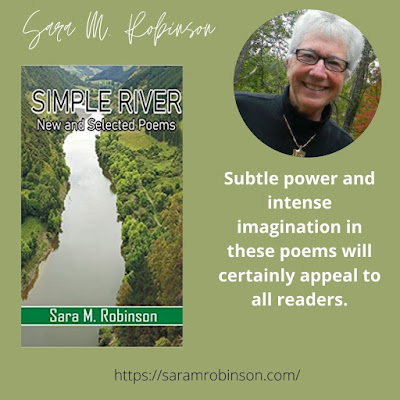J. L. Canfield
One of the few things that will be agreed upon in the future is this: 2020 was a unique, strange year. For the first time, we were told to stay home, stay away from others, including family, and wear face coverings. Media, and many politicians sowed fear into most people. Churches, where we look for peace, closed their doors. Keeping up with friends, family, doctors’ appointments, and work meetings, took on a new meaning and added a new word to life vocabulary: Zoom.
While many people I know, had their lives upended, my life changed little. As a writer, I was ‘Working from Home’ before it was trendy. What changed for me was perspective.
2020 taught me to live simpler, fuller. I gained a deeper respect for St. Francis of Assisi and Sister Clare. When lockdowns happened, I found out, I didn’t have to go shopping every day for things. Instead of working out at the gym, I took advantage of warm, sunny days and walked, a lot. I wrote better, simpler, more insightful pieces.
It was easy to say I trust in God, but last year, I realized how empty those words were when they were only said, not acted upon. Like all words, they mean nothing unless they are shown. In 2017, my debut novel won an award for Best Christian Fiction. Surely, I knew show don’t tell. 2020 proved I didn’t.
The negatives of 2020 have been positives for me. The lifestyle changes improved my writings. My last completed work was picked up by a better publisher and will be released this year. My creative muscle began an intense toning regimen and I have a dystopian YA work-in-progress, two areas I’ve never written in.
2021, for me, will mean giving up the exhaustive pursuit of social media audience growing. I closed my author website at the end of last year. This year, I will focus on writing for publications on Medium, possibly starting one myself. I’ll still post on my Facebook page and occasionally tweet. But no more will I try to do all the social media platforms and chase after potential sales. Instead, I’ve decided to practice what I preached as a chaplain: Trust in God. Besides, I know my views on living a Christ centered life, along with my devout practicing of free speech, not group think, will land me in Social Media jail while I await being banished.
2020 is true hindsight. I grasped how much time I spent daily looking for work, instead of seeking him. My prayers had become ones of begging for an income with not enough time spent thanking him for his blessings. Time that was wasted on fulfilling my job income plans, was time I could have used to improve my self-editing techniques and developing my writing prowess. In 2020, I found my Faith was deep, but my Trust in God was shallow. I knew his word, intimately due to my seminary background, but I didn’t uphold it. Up until 2020, I called on God to honor his promises, reminded him of them, but didn’t trust him to deliver on them, since he wanted to do so in his time, not mine.
2021 will be foresight. Instead of seeking a full-time well-paying position, I am working at a gym for minimum wage and loving it. I’ve met gym rats who will become characters in my future works. No longer am I willing to write tripe about products, or businesses. Instead, I will be using the gift I was given for him, and thus fulfilling my purpose. By having to look at things from a different perspective, I got to see my shortcomings. I’m too old for the marketplace. Younger kids with better, more current skills, can do the work faster and cheaper. My true purpose, my real calling, is crafting stories, novels, articles that inspire and lift-up. My skills are seeing things in a unique way and then sharing that view in pieces that make readers pause and think.
2020 made me weigh out my wants versus needs, my plans, and purposes, and figure out I need to accept HIS for me.
2021 offers the chance to dive into the deep end of the trusting pool. I’ll be going in knowing my little job doesn’t cover my rent, let alone my bills, but that’s ok. God promises to provide for our needs and several times in the Bible he reminds us, not only of this, but also not to worry. My prayers this year have been for my daily manna and everyday it’s been given. Manna to me is not bread, but a nugget of wisdom that keeps me looking in the right direction.
I’m an author. Authors need to write books that publishers and readers want. Authors are told to build platforms and find markets. I think this year, I’ll trust God to give me the ideas and words, to guide me to the right publishers, and leave the audience building in his hands. After all, he knows best who needs to read my works. Why should I think I do? It didn’t work in the past, won’t work in the future. So, I’ve gotten nothing to lose by Trusting Him more, and people less. Want to dive in with me?
.L. Canfield’s debut detective mystery series won the Pencraft award for Best Christian Fiction in 2017. Hiding Behind Robes, is her second release in the series and combines mystery with Irish church history. It is set for release this year. Look for it late summer, early fall on Beacon Publishings website, Amazon, Barnes and Noble. You can follow her on Medium https://medium.com/@juliecanfield_41917



























